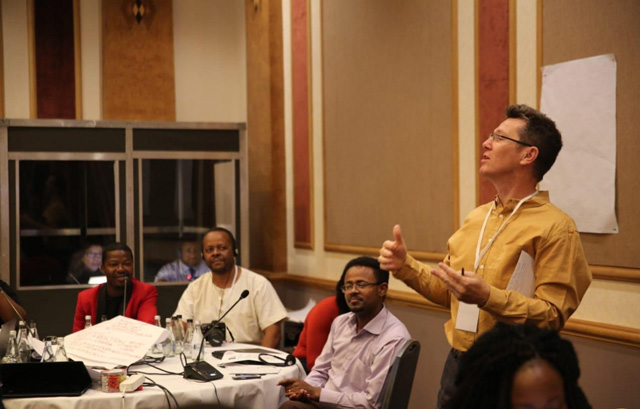
Sandton, South Africa | THE INDEPENDENT | The United Nations Cultural Organization-UNESCO has urged countries to stop preaching abstinence to teenagers because it is not practical.
The agency’s HIV and Health Education Advisor for Eastern and Southern African (ESA) Patricia Machawira, said a majority of the teenagers are sexually active, adding that it is high the governments stopped wasting time preaching abstinence but focus on promoting safe sex.
Machawira was speaking at the ongoing capacity building training for media on Early and Unintended Pregnancy at Sandton City, in South Africa.
Uganda ranks fourth among 10 Eastern and Southern African countries with highest Early and Unintended Pregnancy cases among girls aged 15-19 years, according to a study conducted recently. The findings show that four out of every 10 girls in Uganda, have had early and unintended pregnancies.
In Namibia, seven out of every 10 girls were pregnant, have given birth or had an abortion within the same age bracket. Lesotho and Malawi came second and third respectively. Other countries where the study was conducted include Kenya, Tanzania, South Africa, Swaziland, Zambia and Zimbabwe.
Machawira insisted that Eastern and Southern African countries should put the focus on real practices that can help girls not to conceive early and avoid being infected with HIV through promoting condom use and contraception.
“The percentage of young women aged 15-19 years who had been pregnant was high in all countries, more than 25 per cent in Malawi, Tanzania, Uganda and Zambia. There is evidence that teenage pregnancy has not decreased over time,” Machawira said.
David Wood, UNESCO’s Media Consultant said more girls will continue to be victims of early and in intended pregnancies if countries do not accept that girls are sexually active and abstinence is outdated. Wood said leaders and policymakers should now focus on realistic ways of keeping girls in school but also have strategies of ensuring that victims of early pregnancies are taken back to school.
Cultural practices, poverty and lack of comprehensive sexuality education policies have been cited as top contributing factors of early and unintended pregnancies in Eastern and Southern Africa.
“In several countries in the region, particularly in rural areas, child marriage is a cultural norm that leads to and results from adolescent pregnancies. Some parents are said to force their girls into early marriages to relieve themselves of the burden of taking care of the girls and to benefit from receiving bride price,” Wood said.
The two officials also cautioned countries drafting policies intended to end early and unintended pregnancies to ensure that they cater for boys and men who make girls pregnant but also ensure that parents, teachers and society members are involved.
“Sensitize communities on learner pregnancy management policies and related policies or laws so that parents are aware that their daughters can re-enter school after delivering the baby and what support can be expected at the school level,” Wood said.
Machawira said there is a need to address perception among school staff and learners that pregnant girls are a bad influence on other youth and the school environment.
*****
URN
 The Independent Uganda: You get the Truth we Pay the Price
The Independent Uganda: You get the Truth we Pay the Price



